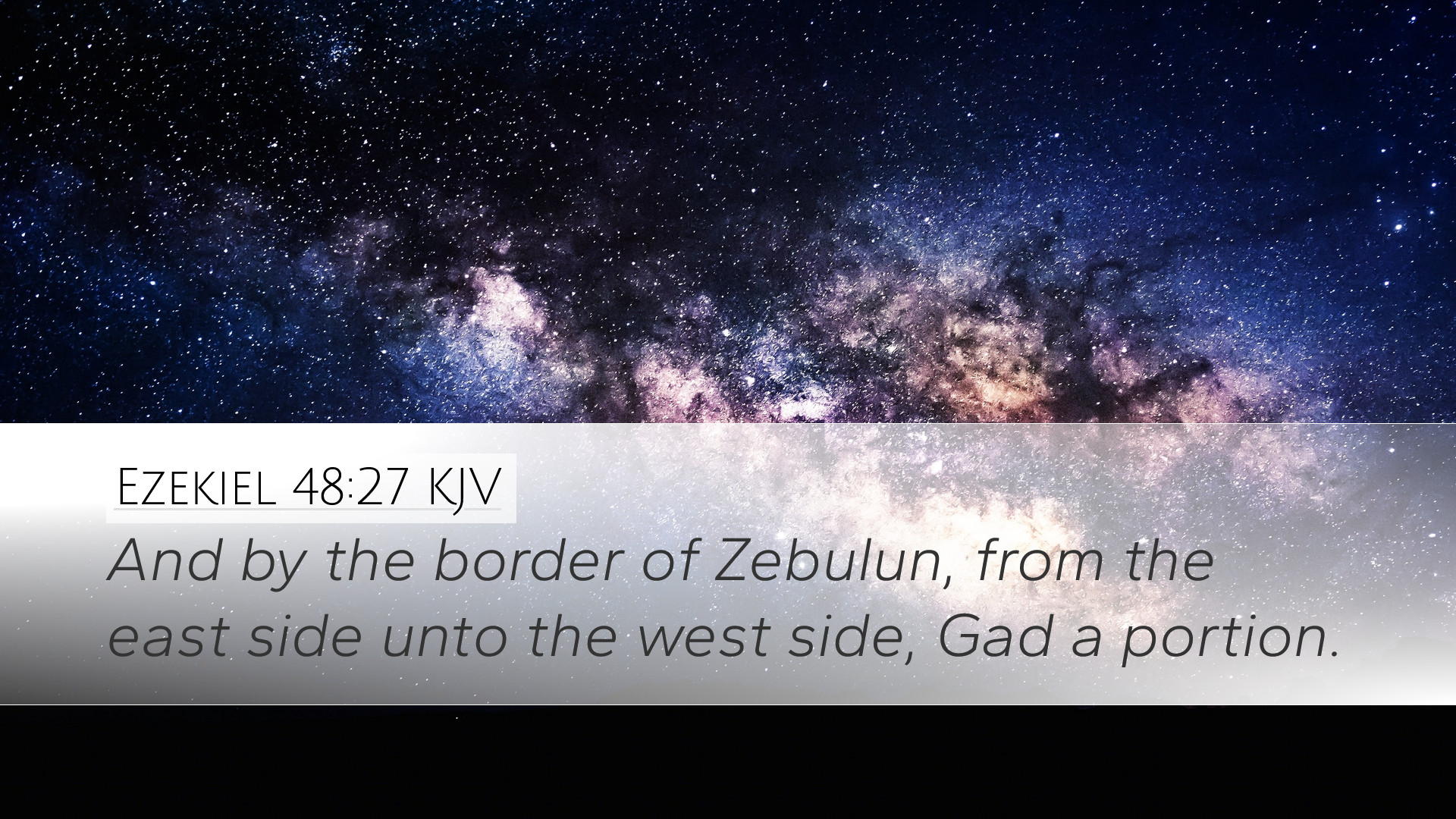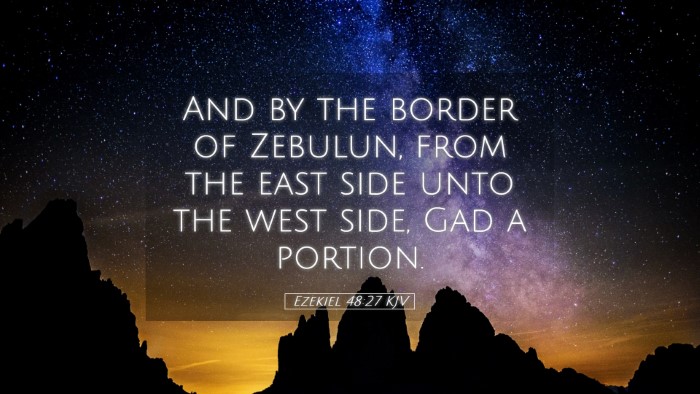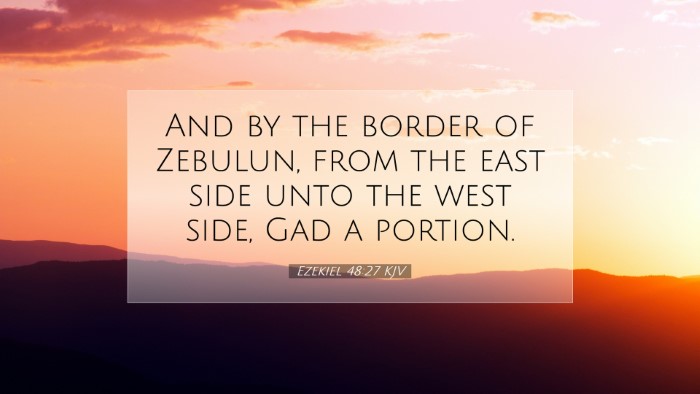Commentary on Ezekiel 48:27
Ezekiel 48:27 specifically reads: "And by the border of Zebulun, from the east side unto the west side, Gad a portion." This verse concludes the detailed description of the tribal allotments of land in the restored Israel, highlighting the division of territory among the tribes of Israel as envisioned in Ezekiel's prophetic vision.
Contextual Overview
This verse belongs to the concluding section of the Book of Ezekiel, which outlines the future restoration of Israel post-exile. The prophet Ezekiel delivers both judgment and hope, emphasizing God’s divine plan for His people. The allotment of land represents not just geographical divisions, but also spiritual significance, indicating God’s promise of restoration and His everlasting covenant with Israel.
Theological Implications
The mention of the tribe of Gad emphasizes the unwavering faithfulness of God to His promises. Each tribe's specific boundaries reinforces the concept of God’s providential care in organizing His chosen people. Here we elaborate on three main theological implications from this verse:
-
God's Covenant Faithfulness:
God's promises to the tribes are a testament to His unchanging nature. The detailed allotments serve as a reminder that, despite past disobedience, God remains committed to His covenant. Albert Barnes notes that the "preserved identity of the tribes" signifies hope for restoration.
-
Spiritual Significance of Land:
The land allocation represents more than mere territory; it symbolizes the enduring relationship between God and His people. Adam Clarke perceives this as a foreshadowing of the eternal inheritance promised to believers, suggesting that just as the tribes received their physical land, followers of Christ receive a spiritual inheritance.
-
The Role of the Tribes:
The mention of Zebulun and Gad illuminates the importance of each tribe's unique role within the community. Matthew Henry stressed that each tribe possesses distinct responsibilities and gifts, contributing collectively to the flourishing of Israel, akin to the diversity within the Body of Christ today.
Commentary Insights
Matthew Henry's Commentary
Matthew Henry emphasizes the structure and order in God’s plan. In his view, the divisions of land reflect God's justice and mercy, providing each tribe a place where they can thrive in their own heritage. He also notes that the mention of Gad’s positioning signifies God’s protection over the tribes, reinforcing the concept that where they dwell, God’s presence resides.
Albert Barnes' Commentary
Albert Barnes elaborates on the geographical elements and their significance. He asserts that the borders serve to delineate the tribes not merely for physical habitation but also to maintain the spiritual and moral responsibilities assigned to each tribe. The boundaries established are reflective of God’s ultimate authority over Israel.
Adam Clarke's Commentary
According to Adam Clarke, the allocation signifies the restoration of Israel as a testimony to God’s grace. He elaborates on the symbolism of each tribe’s land reflecting various aspects of God’s character. Clarke connects the historical context of Gad's descendants and their strength in battle to the broader narrative of God empowering His people to accomplish His will.
Practical Applications
The lessons from Ezekiel 48:27 extend beyond historical or theological reflection. They provide practical insights for the church today:
-
Covenant Relationships:
Believers are reminded of their covenant relationship with God. Just as He's faithful to Israel, He remains faithful in His promises to us.
-
Unity in Diversity:
The church today can draw from the tribal diversity, fostering unity among believers with varying gifts and responsibilities.
-
Hope of Restoration:
In times of trouble, this passage encourages individuals to maintain hope in God’s restorative power and His plans for the future.
Conclusion
In conclusion, Ezekiel 48:27 not only marks a specific allocation of land but also encapsulates profound theological truths about God’s character, His promises, and the significance of community among His people. The insights drawn from respected commentaries like those of Matthew Henry, Albert Barnes, and Adam Clarke provide rich layers of understanding for pastors, theologians, and students of Scripture as they seek to apply these timeless truths in their lives and ministries.


